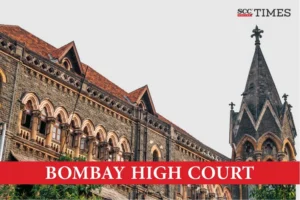Bombay High Court: Petitioners, who were accused in a case pending before the Metropolitan Magistrate, 40th Court, Girgaum, at Mumbai, under Sections 2941, 1142, read with 343 of the Penal Code, 1860 (‘IPC’) and under Sections 3, 8(1), 8(2), 8(3), and 8(4) of the Maharashtra Prohibition of Obscene Dance in Hotels, Restaurants and Bar Rooms and Protection of Dignity of Women (working therein) Act, 2016, had filed the present petition seeking quashing of the said case.
The Division Bench of A.S. Gadkari and Shyam C. Chandak*, JJ., opined that no other specific overt act was attributed to petitioners to attract the offences punishable under Sections 294, 114 read with Section 34 of IPC against them. Therefore, mere presence of petitioners at the hotel as ‘customers’, when the two women were dancing allegedly in obscene manner, was not sufficient to attract the said offence.
Background
On 18-09-2019, Police Head Constable-informant was on surveillance duty to inform about the objectionable activities taking place in bars and restaurants within his jurisdictional area. During the said duty, he visited Sandeep Palace Bar and Restaurant and found that two women were dancing there in an obscene manner. Immediately, he informed that fact to Girgaum Police Station. Thereafter, a police team along with two Punch, one punter and in-charge of Social Service Branch went to the hotel and verified the situation there. They saw that two women were dancing in an obscene manner and customers gave Indian currency notes to waiter and told him to blow the said notes on the dancing women and thus, they were aiding and abetting them to do the dance. The Petitioners were present amongst said customers.
The informant lodged the report against petitioners as they were present amongst the customers in that hotel. Thereafter, FIR was registered, and petitioners and other accused persons were arrested. On completion of investigation, police submitted charge-sheet for the said offences, however, petitioners submitted they were innocent, and hence, filed the present petition.
Analysis, Law, and Decision
The Court noted that petitioners were figured in FIR as ‘customers’, who were present in the hotel when the women were dancing. It was also noted that the waiter concerned could not be examined by the Investigating Officer as he had already left.
The Court stated that there was no material to show that when the customers gave the Indian Currency notes to the waiter, petitioners were amongst the said customers and they only gave currency notes to the waiter with a specific instruction to blow it on the dancing women. The Court opined that no other specific overt act was attributed to petitioners to attract the offences punishable under Sections 294, 114 read with Section 34 of IPC against them. Therefore, mere presence of petitioners at the relevant place and time, as ‘customers’, when the two women were dancing allegedly in obscene manner, was not sufficient to attract the said offence.
The Court relied on Manish Parshottam Rughwani v. State of Maharashtra4, decided on 05-04-2024, wherein the Bombay High Court quashed the FIR for similar offence alleged against the customers, because petitioners therein were merely present in the bar at the relevant time, however, no specific overt act was attributed to them.
Thus, the Court allowed the present petition.
[Nirav Raval v. State of Maharashtra, 2024 SCC OnLine Bom 2339, decided on 12-07-2024]
*Judgment authored by: Justice Shyam C. Chandak
Advocates who appeared in this case:
For the Petitioners: Laxmi Raman a/w Nigel Quraishy
For the Respondents: M. M. Deshmukh, APP
1. Corresponding Section 296 of the Nyaya Sanhita, 2023 (‘BNS’).
4. Cril. Writ Petition (ST) No. 4343 of 2024.

